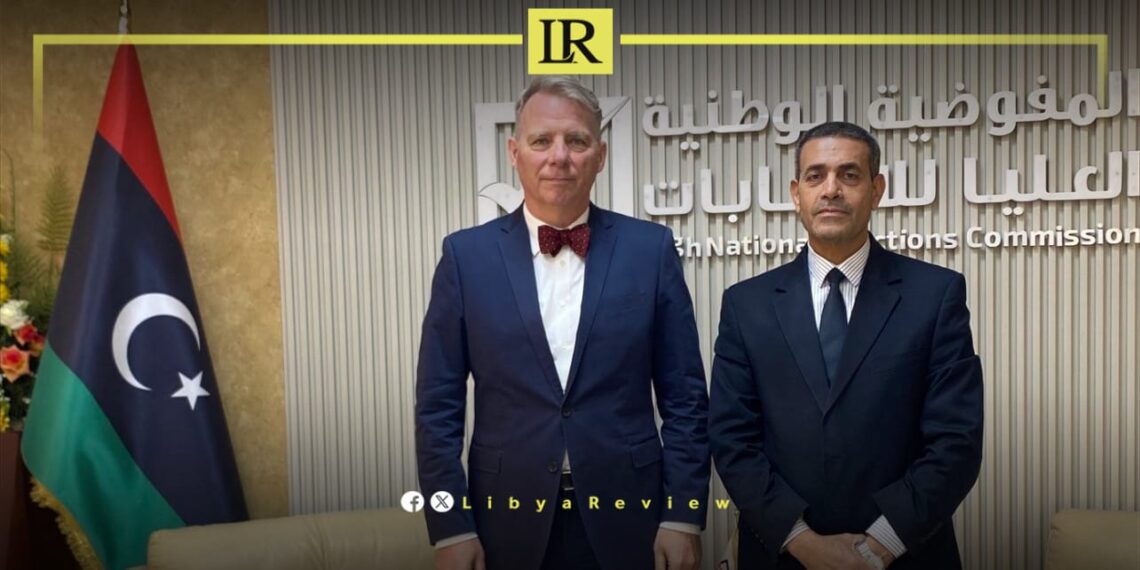German Deputy Ambassador to Libya, Sven Krauspe, met with the Chairman of the High National Elections Commission (HNEC), Emad Al-Sayeh, to discuss preparations for the second phase of municipal elections in Libya. The meeting focused on ensuring the electoral process adheres to the highest standards of transparency and credibility.
According to a statement released by the German Embassy in Libya, Krauspe reaffirmed Germany’s commitment to supporting democratic processes in the country. He emphasised the importance of strengthening local governance through fair and transparent elections, highlighting Germany’s role in assisting Libya’s electoral institutions.
The Libyan municipal elections, which are being conducted in phases, are seen as a critical step toward decentralisation and improved governance. The first phase was completed successfully, and authorities are now working to organise the second phase under the supervision of the HNEC.
Libya has been in chaos since a NATO-backed uprising toppled longtime leader Muammar Gaddafi in 2011. The county has for years been split between rival administrations.
Libya’s economy, heavily reliant on oil, has suffered due to the ongoing conflict. The instability has led to fluctuations in oil production and prices, impacting the global oil market and Libya’s economy.
The conflict has led to a significant humanitarian crisis in Libya, with thousands of people killed, and many more displaced. Migrants and refugees using Libya as a transit point to Europe have also faced dire conditions.
The planned elections for December 2021 were delayed due to disagreements over election laws and the eligibility of certain candidates. This delay has raised concerns about the feasibility of a peaceful political transition.
Despite the ceasefire, security remains a significant concern with sporadic fighting and the presence of mercenaries and foreign fighters. The unification of the military and the removal of foreign forces are crucial challenges.


